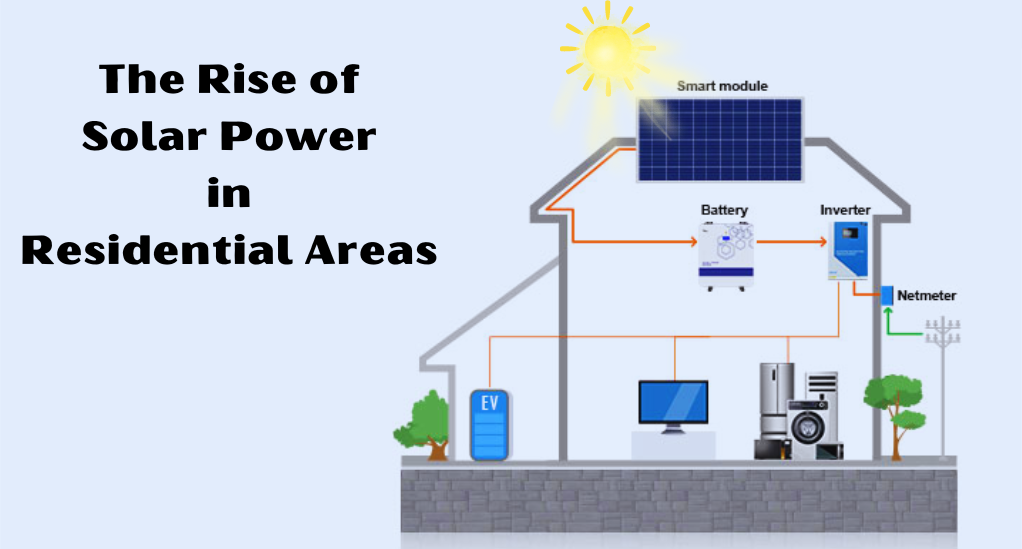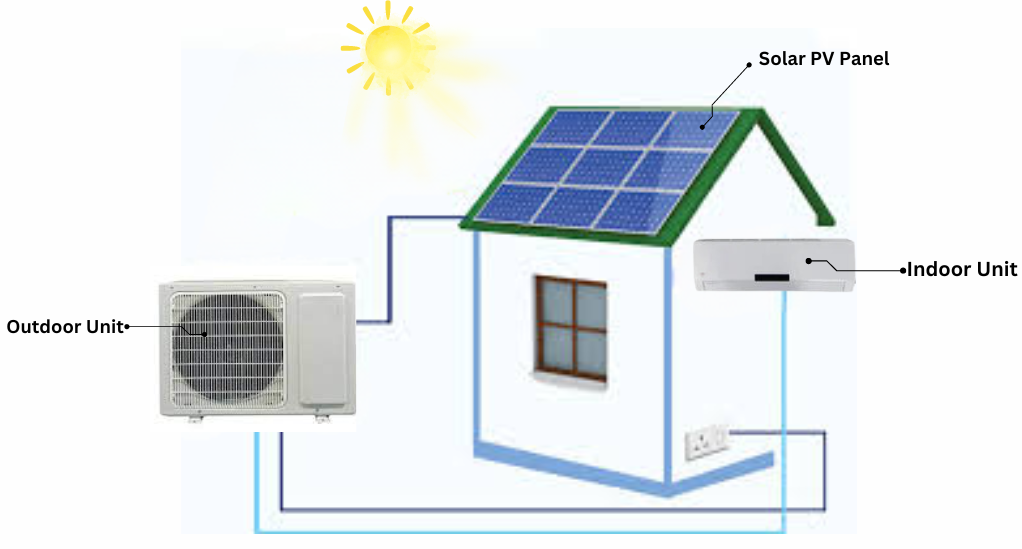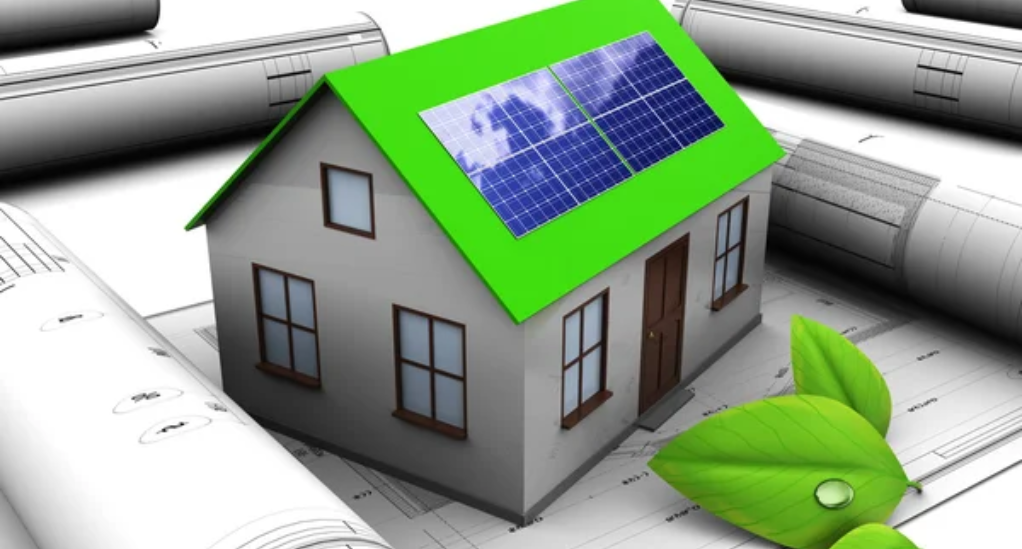In recent years, the shift towards sustainable and renewable energy sources has become more than just a trend; it’s a necessity. As homeowners globally seek to reduce their carbon footprint and energy bills, the demand for the best solar panels and solar-powered appliances has skyrocketed. This section aims to guide you through the burgeoning world of solar power, emphasizing the importance of selecting the best solar panels for your home. Let’s embark on this enlightening journey step by step.
The Rise of Solar Power in Residential Areas
Over the past decade, the adoption of solar power in residential areas has seen a significant uptick. Initially, solar power was primarily used in commercial and industrial sectors due to the high installation costs. However, advancements in technology have made solar panels more affordable and accessible to the average homeowner.
In 2023, residential areas are witnessing a solar revolution, with many neighborhoods installing community solar gardens and homeowners opting for individual solar panel systems. The surge in solar power adoption can be attributed to several factors:

- Government Incentives and Subsidies: Many governments worldwide are offering incentives and subsidies to encourage homeowners to install solar panels.
- Environmental Awareness: The growing awareness about climate change and the need to reduce carbon emissions have propelled people to choose greener energy options.
- Cost-Efficiency: Over time, solar panels can help homeowners save a substantial amount on their electricity bills.
Understanding Solar Power
Harnessing the sun’s energy to power our homes is a remarkable feat of technology, blending innovation with sustainability. In this section, we will explore the fundamentals of solar power, how solar panels work, and the myriad benefits they bring to residential settings.
How Solar Panels Work
Solar panels, also known as photovoltaic (PV) panels, are devices that convert sunlight into electrical energy. Here’s a step-by-step breakdown of how this process occurs:
- Absorption of Sunlight: Solar panels are equipped with solar cells that absorb photons (light particles) from the sun.
- Generation of Electric Current: When photons hit the solar cells, they excite the electrons in the cells, creating a flow of electric current.
- Conversion to Usable Electricity: This electric current then flows to an inverter, which converts the direct current (DC) into alternating current (AC), a form of electricity usable in homes.
- Distribution of Electricity: The AC electricity is then distributed throughout the home to power appliances and other electrical devices.
- Surplus Energy Storage or Grid Transmission: Any surplus energy generated can be stored in batteries for later use or transmitted back to the electric grid, possibly earning the homeowner credits from their utility company.
Benefits of Solar Power for Homes
Solar power is more than a renewable energy source; it’s a preferred choice for many homeowners due to its myriad benefits. Firstly, it serves as a green alternative, reducing reliance on fossil fuels and decreasing greenhouse gas emissions. After the initial setup, it proves to be cost-efficient, significantly lowering electricity bills in the long run. This investment not only grants homeowners energy independence, ensuring a stable power supply even during outages but also potentially increases property values. Moreover, many governments are facilitating this transition by offering incentives, rebates, and tax credits, making the initial investment more affordable and appealing.
Choosing the Best Solar Panels for Home
In the journey to a greener home, selecting the right solar panels is a pivotal step. This section is dedicated to helping you navigate through the myriad options available in the market, focusing on the vital factors to consider and showcasing the top-rated brands that have been making waves in 2023.
Factors to Consider
Choosing the best solar panels for your home is not a decision to be taken lightly. Here are some critical factors to consider that will guide you in making an informed choice:
- Efficiency: This refers to the amount of sunlight that the panels can convert into usable electricity. Higher efficiency means that the panel can generate more power in a smaller area.
- Durability: Consider the lifespan of the panels. The best solar panels can withstand harsh weather conditions and have a longer lifespan, providing value for money.
- Warranty: A substantial warranty period is a testament to the quality and durability of the panels. It also ensures that you are covered for repairs and replacements for a significant time.
- Cost: While it’s tempting to opt for cheaper options, it’s essential to consider the long-term benefits of investing in high-quality panels that might be a bit pricier but offer better performance and durability.
- Reviews and Recommendations: Before making a purchase, research and read reviews from other homeowners who have installed solar panels. Personal recommendations can also provide insights into the best brands available.
Innovative Solar-Powered Appliances
In the quest to create a greener home, integrating solar-powered appliances can be a game-changer. These appliances not only reduce your reliance on the grid but also contribute to a substantial decrease in your utility bills. In this section, we will explore some of the top solar-powered appliances that are making waves in 2023.
Solar-Powered Heating Systems
Solar-powered heating systems are an excellent way to harness the sun’s energy to warm your home during the colder months. These systems can be integrated with your existing heating setup, providing a sustainable alternative to traditional heating methods. Here are some options to consider:
- Solar Water Heaters: These systems use solar energy to heat water, which can then be used for various purposes, including space heating.
- Solar Space Heaters: These heaters can warm your home directly using solar energy, reducing the need for conventional heating fuels.
| Features | Traditional Heating Systems | Solar Heating Systems |
|---|---|---|
| Energy Source | Gas, Electricity | Solar Energy |
| Environmental Impact | High (Carbon Emissions) | Low (Renewable Energy Source) |
| Operating Costs | High | Low (After Initial Installation) |
| Maintenance | Regular Maintenance Required | Low Maintenance |
| Installation Costs | Varies | Higher Initial Costs, but Long-term Savings |
Solar-Powered Air Conditioning Units
Solar-powered air conditioning units are a groundbreaking addition to the green home, utilizing the sun’s energy for cooling. These units, available in hybrid or fully solar-powered versions, offer notable advantages. They are significantly more energy-efficient than traditional air conditioners, helping to reduce your energy bills substantially. Moreover, by harnessing solar energy, they maintain a lower carbon footprint, making them a more environmentally friendly choice compared to their conventional counterparts.

Solar-Powered Outdoor Lighting
Solar-powered outdoor lighting offers a simple and cost-effective way to brighten your outdoor spaces while conserving energy. These easy-to-install lights come in various forms, including solar garden lights, which adorn pathways and gardens, charging by day and illuminating automatically at night. Additionally, solar security lights, equipped with motion sensors, enhance home security by lighting up when movement is detected, offering both illumination and peace of mind.
Installation and Maintenance
Embarking on the journey to a solar-powered home is an exciting venture. However, it involves meticulous planning and understanding of the installation and maintenance processes. In this section, we will walk you through the steps involved in installing solar panels and tips to maintain them for optimal performance.
Steps in Installing Solar Panels
Installing solar panels is a process that requires careful consideration and planning. Here is a step-by-step guide to help you navigate through the installation process:
- Site Assessment: Before the installation begins, a professional will assess your home to determine the best location for the panels, considering factors like sun exposure and roof condition.
- Choosing the Right Panels: Based on the assessment, choose the best solar panels for your home, considering factors such as efficiency, durability, and warranty.
- Permit and Paperwork: Obtain the necessary permits and complete the required paperwork to ensure compliance with local regulations and guidelines.
- Installation: A team of professionals will install the panels, ensuring they are securely mounted and connected to your home’s electrical system.
- Inspection and Commissioning: After installation, the system will be inspected to ensure it meets the necessary standards and is ready for operation.
Maintenance Tips for Best Residential Solar Panels
Once your solar panels are installed, regular maintenance is essential to ensure they operate at peak efficiency. Here are some tips to help you maintain your solar panels:
- Regular Cleaning: Dust and debris can accumulate on the panels, reducing their efficiency. Regular cleaning ensures optimal performance.
- Professional Check-ups: Schedule periodic check-ups with professionals to assess the system’s condition and perform necessary maintenance.
- Monitoring System Performance: Install a monitoring system to keep track of the performance and identify any issues promptly.
- Tree Trimming: If you have trees around, ensure that they are trimmed to prevent shading and allow maximum sunlight to reach the panels.
- Updating the System: As technology advances, consider updating your system to incorporate new features and enhance performance.
Conclusion
In the current era, transitioning to solar power is more than a trend; it’s a vital step towards fostering a sustainable future. This guide has navigated through the nuances of solar energy, offering insights into the remarkable advancements and benefits that solar-powered appliances bring to modern homes. Adopting solar technology is not just an eco-friendly initiative but a gateway to a sustainable, economically prudent lifestyle. The initial steps of selecting the apt solar panels and understanding the intricacies of installation are pivotal in embarking on this green journey successfully.
As we conclude, it’s evident that integrating solar power into our homes is a tangible and accessible reality, marking a significant stride towards a harmonious coexistence of technology and nature. This transition is not just a commitment to environmental conservation but a proactive move towards a brighter, greener future, setting a precedent for generations to come. Let’s embrace the solar revolution, paving the way for a sustainable living environment that harmonizes with the needs of our planet.

